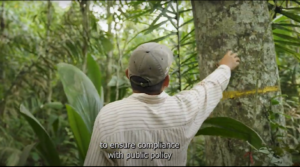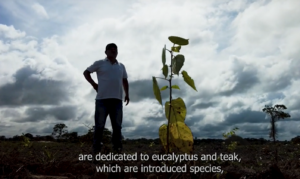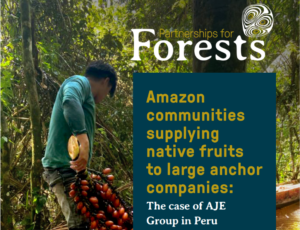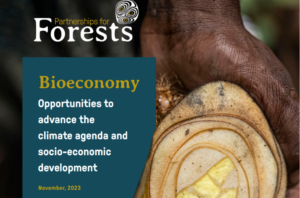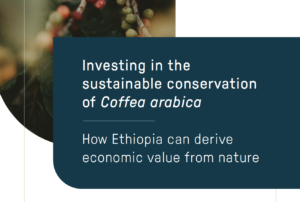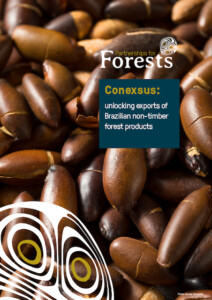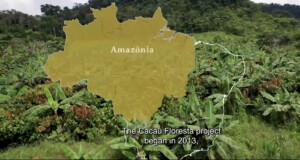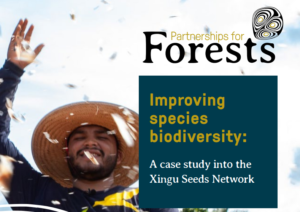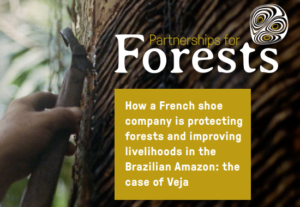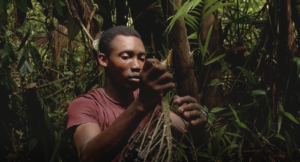Terrasos, a P4F partner, has created a unique business model around habitat banks in Colombia. The company stands as a pioneering entity in the biodiversity credits market, incorporating an economic incentive seamlessly into its business model to enhance the economic viability of the Habitat Bank model.
Theme: Biodiversity
Sustainable timber production in Peru – P4F and Form International
The video “Sustainable timber production in Peru” shows how Form International, with the support of P4F, is consolidating a business model that offers a profitable alternative to the recovery of degraded land, particularly due to cattle ranching and monocultures, in the Ucayali region of Peru.
Amazon communities supplying native fruits to large anchor companies: The case of AJE Group in Peru
P4F has supported several value chain actors to scale a community-focused and sustainable superfood juice to a transparent and resilient value chain which provides the local and indigenous Amazonian communities with an income source, and protects forests and biodiversity.
Bioeconomy: Opportunities to advance the climate agenda and socio-economic development
This case study highlights our lessons on expanding and strengthening the bioeconomy in Latin America. Based on P4F’s initiatives in Brazil, Colombia, and Peru, it brings together practical examples and innovative thinking on how to support businesses with a positive socio-environmental impact.
Investing in the sustainable conservation of Coffea arabica: How Ethiopia can derive economic value from nature
This policy brief takes lessons from a study into the economic values of Coffea arabica biodiversity in Ethiopia and provides actionable steps that the Ethiopian government can take to enhance forest coffee and the economy around it.
Conexsus: Unlocking exports of Brazilian non-timber forest products
This case study shares findings from a Partnerships for Forests (P4F) supported project in Brazil aimed to facilitate access to foreign markets for rural and forest small and medium enterprises which are primarily owned or led by women and traditional communities.
Sustainable cocoa agroforestry in the Amazon
This case story highlights the relevance of the Cacau Floresta project for the restoration of the biome in southeast Pará.
Improving species biodiversity: A case study into the Xingu Seeds Network
This case study illustrates Partnerships for Forests’ support for regenerative business models in high biodiversity areas in Brazil.
How a French shoe company is protecting forests and improving livelihoods in the Brazilian Amazon: the case of Veja
This case study synthesises several lessons learned by French footwear manufacturer Veja in strengthening a sustainable, and socially responsible native rubber supply chain in Brazil.
Sustainable açaí and heart of palm in Colombia
Presenting the successful story of Planeta, a regional business built around non-timber forest products in the departments of Antioquia and Chocó, in Colombia.
